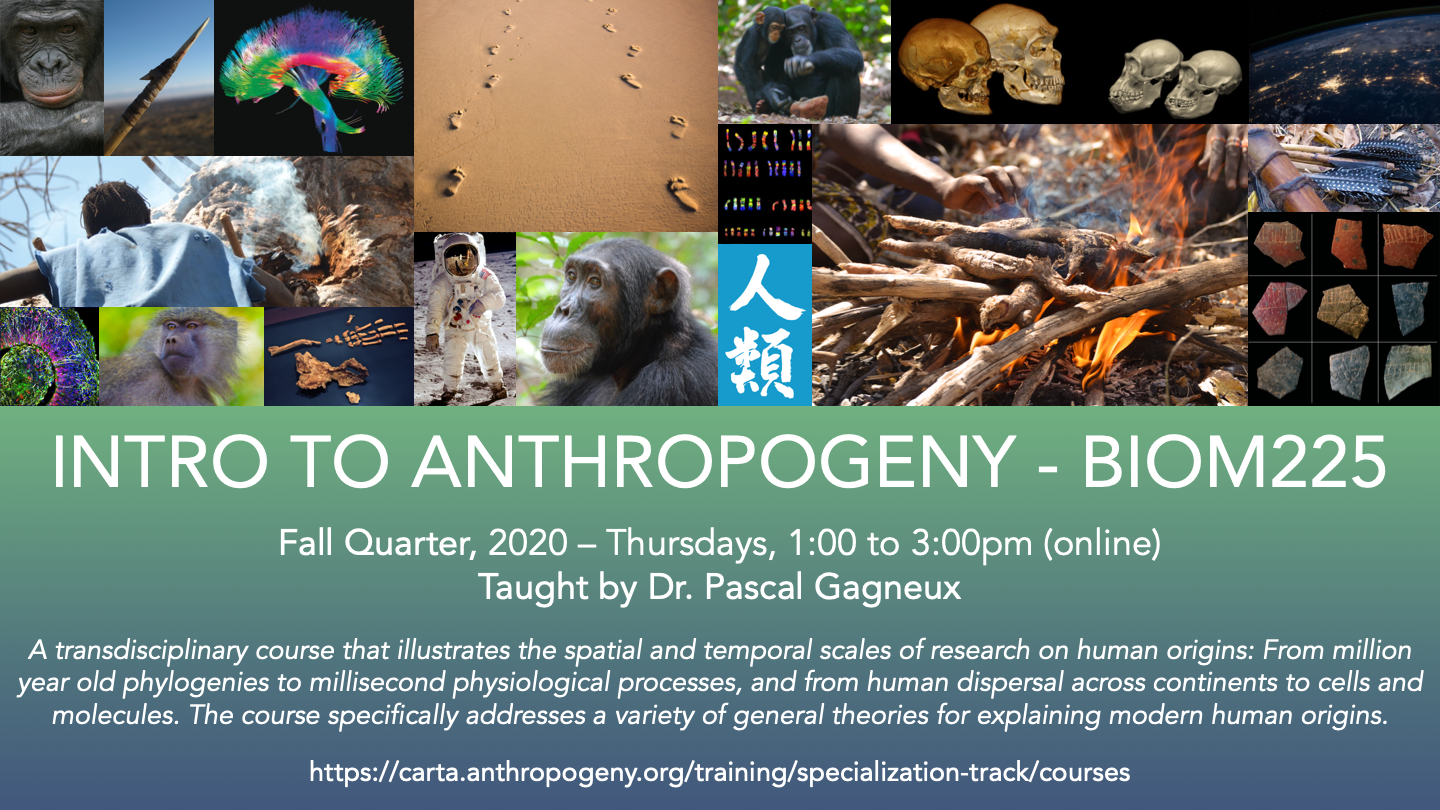Introduction to Anthropogeny Fall 2020

This course provides an overview of key areas in anthropogeny and the current state of research into human origins. The course is transdisciplinary and illustrates the spatial and temporal scales of research on human origins: from million year old phylogenies to millisecond physiological processes, and from human dispersal across continents to cells and molecules. The course specifically addresses a variety of general theories for explaining modern human origins. This lecture series introduces graduate students participating in the Anthropogeny specialization, as well as other interested graduate students not enrolled in the specialization, to the key questions motivating ongoing research into human origins. It presents our species as one among a large number of primates and stresses the primate heritage of our behavior and biology. Against this backdrop of primate evolutionary roots, the large number of important human specializations are discussed ranging from biochemistry to social organization. The broad topic areas to be covered include:
- Human and Primate Genetics and Evolution – The position of humans on the "tree of life.
- Paleoanthropology and Hominid Origins - Bones and artifacts of ancestors and extinct relatives.
- Mammalian and Primate Neurosciences – Brains, their development and their consequences.
- Primate Biology and Medicine – What makes us sick and why?
- Language and Cognition – Are other species telling stories?
- Human and Primate Society and Culture – Social systems, mating systems, institutions and transmission of non-genetic information across generations.
- Nature-Nurture Interactions in Explaining Language and Cognition – Nature via nurture.
- Comparative Developmental Biology of Primates – Pre- and post-natal timing of key life stages.
Lecture topics coordinate between spheres of investigation, e.g. molecules, anatomy, cell biology, development, genetics, and ecology. Extreme care is given to the use of mutually intelligible terminology, a key necessity for integrating different spheres of knowledge. Examples of general theories of human evolution include "Machiavellian brain", i.e. social cognition, "cooking ape", i.e. diet & technology, "savanna adaptation" or "aquatic ape", i.e. ecology and physiology, "sexually selected mind", i.e. mating systems and social organization, "less is more", i.e. genome evolution by secondary loss of function, "domesticated ape", etc. To register for the course, please visit the UCSD "Schedule of Classes," and search for BIOM 225.
Please note that due to the Coronavirus pandemic, this course will meet online via ZOOM. Details to come.
| Attachment | Size |
|---|---|
| 4.55 MB |

